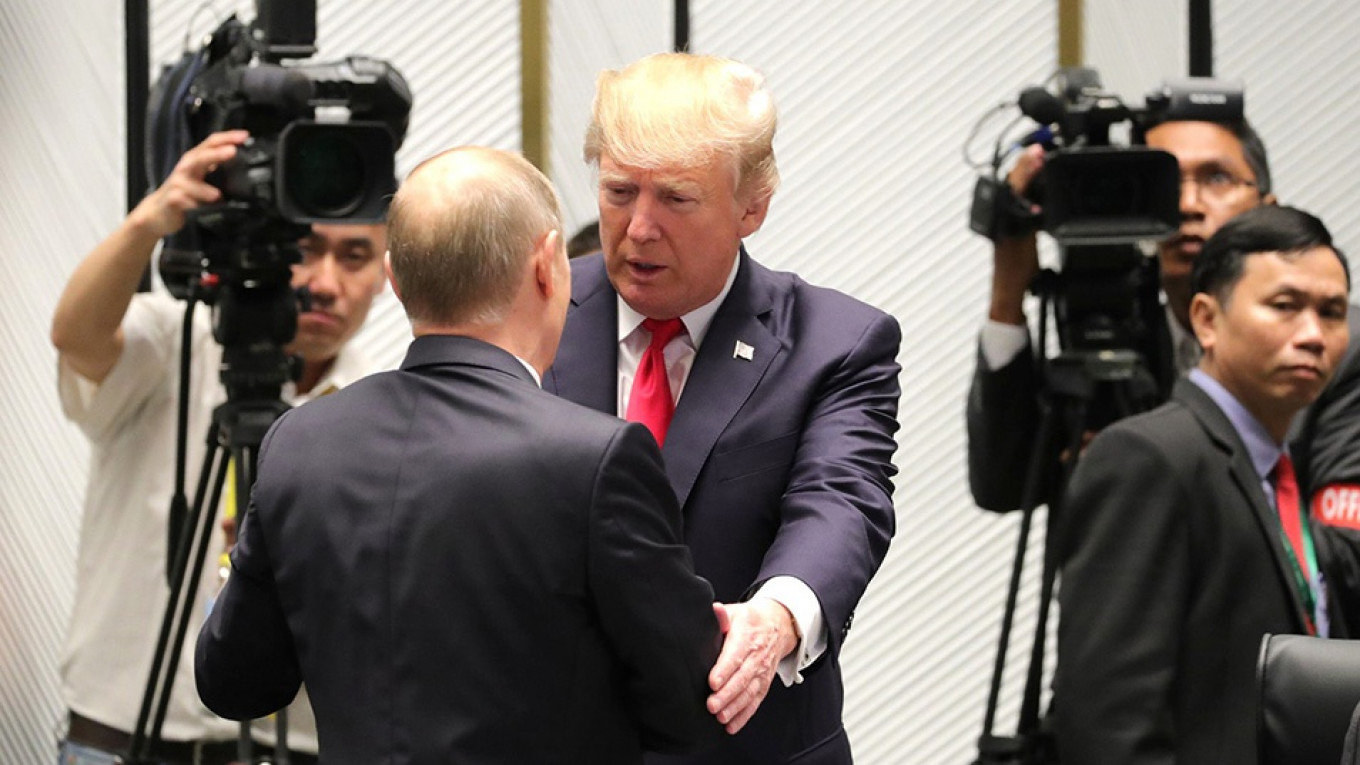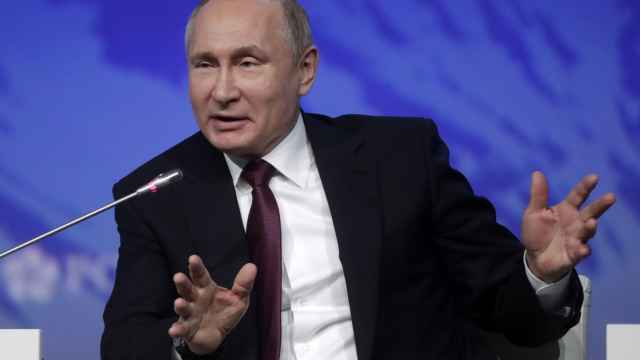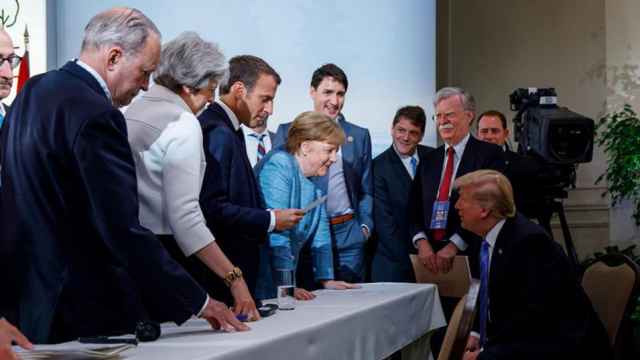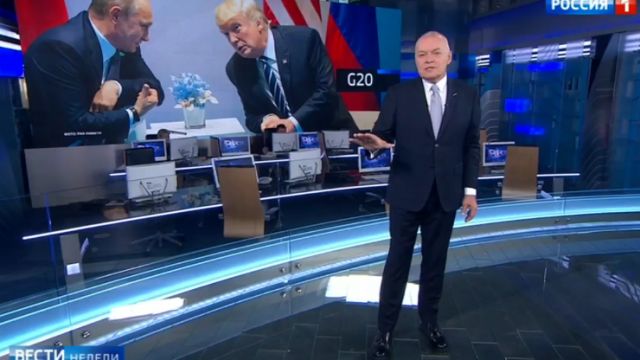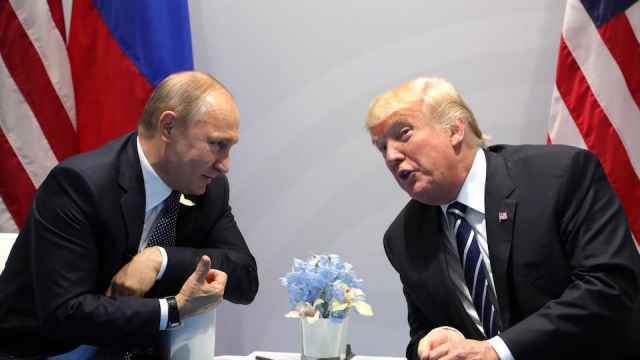Ahead of the summit between U.S. President Donald Trump and Russian President Vladimir Putin in Helsinki on July 16, the Kremlin’s expectations are high — too high, given the limited scope of the discussion.
Moscow’s first goal, which is already partially achieved by the very fact of the summit, is to clear the air. It is in Putin’s interests to ease tensions and reset the relationship on his terms, especially if he doesn’t have to yield any ground on Ukraine, U.S. election meddling or Syria.
Moscow will probably seek a joint statement announcing that full contacts between the governments are being reinstated. (They were suspended by the Obama administration in 2014 in response to the annexation of Crimea.) For Putin, this would be a powerful reaffirmation that his strategy of staring down the United States is working.
Moscow is not necessarily focused on tangible deliverables from the summit. Rather, it would like to create a narrative that would allow Trump to tout the meeting as a triumph for U.S. interests, a triumph that justifies his taking further steps to repair the relationship, even though the U.S. would get little in return.
The Kremlin does not really expect sanctions relief. It knows that Trump’s hands are tied by Congress. Plus, it has adjusted to the current level of sanctions. What it wants to prevent is an escalation of U.S. pressure, or a repeat of what happened in April, when U.S. Treasury sanctions started to dictate the ownership structure of major Russian companies. This undermines Putin’s claim of Russia’s full sovereignty. Moscow’s main aim, which was derived after carefully observing Trump’s summit with Kim Jong Un in Singapore, is to create momentum that would make it politically painful and personally humiliating for Trump to revert to confrontation.
Moscow wants to keep Trump so deeply invested in dialogue that he becomes reticent to admit the whole endeavor is a failure. The idea is to lock Trump into a policy and propaganda framework that would eventually force him into major U.S. concessions on issues of interest to Russia. Putin sees how easily Kim Jong Un has forced the U.S. to soften its negotiating demands in order to maintain the illusion of Trump’s success in Singapore.
Putin sees how easily Kim Jong Un has forced the U.S. to soften its negotiating demands.
Three possible deliverables are likely in Helsinki. One would be an aspirational, vaguely worded statement committing Russia and the United States to working toward the withdrawal of “foreign forces” from Syria. The United States would take that as a Russian pledge to push out Iran; Russia would insist it means a complete U.S. withdrawal from northeastern Syria, as well as U.S. consent to Bashar Assad’s continued rule. Both countries will spin this as a major triumph for diplomacy, which would later lead to disappointment. Russia cannot force Iran out of Syria, nor does it want to — Putin may want to insert himself as an intermediary between Tehran and Washington to raise his value to Trump and to keep the U.S. and Iran in conflict, but not at war.
There could be an attempt to get closure on election meddling. Moscow will deny “government responsibility,” but keep open the possibility that “patriotic hackers” were involved. Trump will eagerly buy it. They may issue a meaningless statement saying that both states promise not to meddle in elections in the future. This gives Trump a “WIN!” — he prevented Russian meddling in the 2018 midterm elections. Putin, on the other hand, will take it as a U.S. commitment not to use internet platforms in Russia to promote democracy.
Finally, there could be some agreement to extend the New START Treaty till 2026, as a low-cost fix. Neither side is interested in reductions or in new arms control treaties. Both are pursuing strategic modernization programs for their nuclear arsenals.
There will be some discussion of Ukraine in the one-on-one meeting. Trump has three possible offers. First, the “Baltic solution” in which he doesn’t recognize Russian sovereignty over Crimea, but normalizes ties anyway. Second is the “Finland solution” — recognition in exchange for full Russian withdrawal from Donbass. The third would be to demand a Russian pledge to never again change borders by force in Europe, in exchange for NATO steering clear of Ukraine and Georgia. What Putin would bring to this discussion will be the most closely watched part of the meeting.
Vladimir Frolov is a Russian columnist and political scientist. The views expressed in opinion pieces do not necessarily reflect the position of The Moscow Times.
A Message from The Moscow Times:
Dear readers,
We are facing unprecedented challenges. Russia's Prosecutor General's Office has designated The Moscow Times as an "undesirable" organization, criminalizing our work and putting our staff at risk of prosecution. This follows our earlier unjust labeling as a "foreign agent."
These actions are direct attempts to silence independent journalism in Russia. The authorities claim our work "discredits the decisions of the Russian leadership." We see things differently: we strive to provide accurate, unbiased reporting on Russia.
We, the journalists of The Moscow Times, refuse to be silenced. But to continue our work, we need your help.
Your support, no matter how small, makes a world of difference. If you can, please support us monthly starting from just $2. It's quick to set up, and every contribution makes a significant impact.
By supporting The Moscow Times, you're defending open, independent journalism in the face of repression. Thank you for standing with us.
Remind me later.



